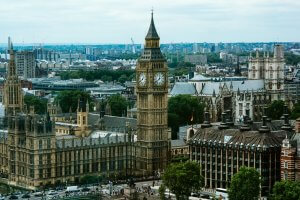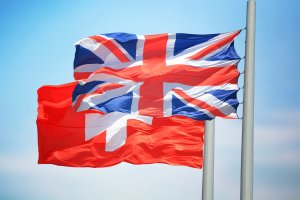- Commercial disputes
- Financial services

Longer Reads
Climate Justice: an overview
Activists in the UK have been coming together to see how litigation can be used to bring about change in climate policy, so called, “Climate Justice”. The concept of Climate Justice has been a ‘hot topic’ for some years although it is one that has predominantly taken the stage in countries outside of the UK.
6 minute read
Published 9 November 2020
Key information
In the last two years we have seen a global rise in climate related litigation, and activists in the UK have been coming together to see how litigation can be used to bring about change in climate policy, so called, “Climate Justice”. The concept of Climate Justice has been a ‘hot topic’ for some years although it is one that has predominantly taken the stage in countries outside of the UK.
This rise in this area of litigation poses risks to businesses who may face the exposure to damages claims, financial and reputational costs of defending litigation, and the time and disruption associated with the requirements of litigation including document disclosure.
For claimants, this developing area of litigation provides a vehicle for implementing change, holding businesses accountable and challenging policies.
The umbrella of climate litigation can cover a variety of different causes of action, including litigation against companies and governments for:
- emissions contributing to climate change;
- breaches of human rights;
- failure to disclose climate related financial risks;
- projects which will cause damaging emissions;
- misleading and fraudulent corporate climate claims or commitments;
- governments indirectly affecting business operations; and
- failing to meet climate policies and agendas.
Case law
(1) States
We have seen attempts at Climate Justice for many years, but more recently we have seen some successful cases and these have largely been against states.
The case of Urgenda Foundation v Kingdom of the Netherlands [2015] HAZA C/09/00456689 is widely considered to be the first example of citizens establishing that their government has a legal duty to prevent dangerous climate change. A group of 886 Dutch citizens filed a suit via an environmental group, The Urgenda Foundation. The claimants sought an injunction to compel the Dutch government to reduce emissions and alleged that the Dutch government was exposing its own citizens to danger by failing to take sufficient action to prevent climate change. The Court was presented with scientific reports to quantify the Netherlands’ emissions and their impact in relation to the Netherlands’ climate commitments and the state’s duty of care
In 2015 the district court of the Hague concluded that the state has a duty to take climate change mitigation measures and it ordered a reduction in carbon dioxide emissions of a minimum of 25 percent by 2020. The decision was upheld in October 2018.
The Judgment drew on existing ECHR jurisprudence on states’ positive obligations in cases of environmental disaster and serious environmental harm (see Öneryıldız v. Turkey (application no. 48939/99) Budayeva and Others v. Russia (application nos. 15339/02, 21166/02, 20058/02,11673/02 and 15343/02) Kolyadenko and Others v. Russia(applications nos. 17423/05, 20534/05, 20678/05, 23263/05, 24283/05 and 35673/05)) which have claimed breaches of right to life, right to privacy and right to protection of property.
Urgenda applies this human rights jurisprudence to environmental damage in the form of climate change using the expert evidence to show serious environmental harm. This case has the potential to set the precedent that human rights can serve as a basis for obliging states to reduce their emissions. The UN High Commissioner for Human Rights, Michelle Bachelete, commented that this case provides a clear path forward for concerned individuals in Europe and around the world to undertake climate litigation in order to protect human rights.
We have seen a number of jurisdictions, such as Germany, decline to enforce governments’ targets for reduction in emissions (Family Farmers and Greenpeace Germany v. Germany [2019]00271/17/R /SP). It may be that human rights laws are the key to holding states accountable when their pledges are deemed to be not legally binding.
Conversely, in a court case in the USA, Juliana v US [2015] 18-36082, the plaintiffs’ claim for relief for governmental action and inaction in regulating carbon dioxide pollution on the basis of constitutional rights was dismissed on the grounds that it was better dealt with by the executive and legislature. A key takeaway here is that there was no state target, policy or rule which the plaintiffs were attempting to hold the state accountable for. It is therefore more difficult for the judiciary to justify imposing the obligation on the state than it would be in states which have made the pledge but failed to adhere to them. In this respect it is distinguishable from Urgenda.
(2) Companies
Claimants have pursued litigation against companies that are considered to be major contributors to climate change, usually companies whose business causes dangerous emissions. As well as litigation we are seeing complaints to various other bodies in attempts to force companies to make changes.
Complaints under OECD
In the UK, activist group Client Earth filed a complaint against BP to the UK National Contact Point (NCP) for the Organisation for Economic Co-operation and Development (OECD) Guidelines for multinational enterprises. The complaint is over BP’s ‘Keep Advancing’ and ‘Possibilities Everywhere’ advertising campaigns, which focus on BP’s low carbon energy products, which Client Earth claim are misleading and greenwashing because BP spend less than 4% on clean energy investments. After the complaint is made it is sent to BP, and the UK NCP will assess if the issues in the complaint are substantiated. If the complaint is accepted then Client Earth will enter into mediation and the NCP will issue a final decision. If Client Earth are successful the NCP would call on BP to withdraw their ad campaigns and revise them.
A similar complaint was filed in Australia to the Australian NCP by Friends of the Earth against ANZ (Australia and New Zealand Banking Group). ANZ is accused of failing to provide sufficient information to its customers in relation to emissions in breach of greenhouse gas reporting requirements and for failing to conduct adequate due diligence regarding climate risks and failing to mitigate the harmful environment impacts of its fossil fuels. In addition, the claimants have requested that the Australian NCP recommend stricter laws to the Australian government in regards emissions and reporting.
Objections to projects
As well as complaints about existing issues, climate change activism groups have objected to proposed projects in an attempt to stop harmful emissions in the future. In May 2020, in Queensland, Australia, a group called Youth Verdict challenged an application for a mining lease on the basis that their human rights will be impacted by the climate change effects of the mine, citing Queensland’s new Human Rights Act. The application for a mining lease was made by Waratah Coal for an open cut and underground coal mine located in the Galilee Basin. Youth Verdict lodged objections to the grant of the mining lease and to the Environmental Authority for the project, which will be heard by the Land Court of Queensland. Climate change objections to the grant of mining leases for coal have previously been raised in the Land Court but have not been successful. The Galilee Coal Project has received federal and state approval but needs to be assessed by the Queensland Land Court before the final state environmental authority can be issued. On August 28, 2020, the court denied the defendant’s motion to dismiss the case.
In February 2020, Plan B successfully objected to the plan to add a third runway to Heathrow airport, discussed further below.
Litigation
In 2019 there were two US cases against oil and gas giant Exxon in the USA. In The People of the State of New York v Exxon Mobil Corporation (Exxon) in December 2019, Exxon were found not guilty of perpetrating a longstanding fraudulent scheme concerning the management of business risks relating to climate change. The claim for statutory fraud failed after the Attorney General of New York failed to prove that Exxon made material misrepresentations that misled investors.
A claim in Massachusetts was also brought against Exxon in October 2019 alleging that Exxon deceived investors and did not disclose climate change related risks and greenwashing customers through misleading campaigns. In May 2020, this case was remanded from the federal to the state court, as they claimed there was no jurisdiction. It has yet to be concluded.
In July 2018, a claim was commenced in Australia against one of Australia’s largest pension funds, Mark McVeigh v Retail Employees Superannuation Pty Ltd (REST). The claim is for REST’s failure to adequately disclose its strategy to manage climate change risks; being in breach of their statutory disclosure requirements; and having breached its fiduciary duties by failing to adequately consider the risks of climate change in managing investments. This case is due to go to trial later this year.
Claims have been issued in the Netherlands and France against Shell (Netherlands) and Total (France) citing duties of care to take action to reduce their greenhouse gas emissions. The Shell case cites the Dutch Civil Code and ECHR rights, and argues that Shell has knowledge of the climate change issue, has made misleading statements on climate change and have taken inadequate action. Many will be watching to see how these cases play out.
Following these cases, clearly claims and complaints against companies who contribute significantly to climate change are increasing, and it will be interesting to see how some of these cases conclude in the next few months of 2020 and early 2021. However, it is significant that some of the litigation cases, such as the New York Exxon case have not been successful.
UK
In the UK, we have seen court action in the form of judicial review of government decisions, such as the case brought by activist group Plan B seeking judicial review of the decision to build a third runway at Heathrow airport and of failure to revise 2050 emissions reduction targets (which are in breach of Climate Change Act 2008).
On 27 February 2020, the Court of Appeal upheld Plan B’s claim that the Government’s planned expansion of Heathrow Airport was unlawful, with permission to appeal for judicial review, because the Government had failed to take account of its own policy commitment to the Paris Agreement, setting a “game-changing” precedent of global application. The Government is not appealing. The appeal of Heathrow Airport Limited, the company that would benefit commercially from the expansion, was heard by the Supreme Court in October 2020 and a judgment is expected in early 2021.
The government has vowed to ensure that it abides by the judgment and to take into account the Paris Convention on climate change, but Heathrow Airport are appealing on grounds that they claim that the Paris Agreement is not part of the government policy on climate change.
On 1 May 2019, the UK government declared a climate emergency and a pledge to meet net-zero greenhouse gas emissions by 2050. This is a significant statement which puts climate change firmly on the government agenda and potentially could be used in claims similar to Urgenda with actions to hold the government to their proposals.
Conclusion
Climate Justice is a developing area and claimants are proving to be persistent, adaptable, and innovative in their approaches. It is apparent that the law can be used to impose duties to prevent climate change on companies and governments alike, but it is currently developing on a case by case, country by country basis. Governments are bearing the brunt of claims and there appears to be more appetite for imposing duties on governments than companies, however, we are seeing an increasing number of complaints and claims against major contributors to greenhouse emissions.
It is likely that litigation will increasingly be used as a tool to hold governments and companies accountable for their climate change actions and pledges. So far, we have seen significant decisions made in regards to breaches of human rights law because of actions that are damaging to the environment and climate change. We have also seen some actions against companies, but we expect further development in this area, particularly against finance and investment companies who pledge sustainable financing.
Related content
Longer Reads
Climate Justice: an overview
Activists in the UK have been coming together to see how litigation can be used to bring about change in climate policy, so called, “Climate Justice”. The concept of Climate Justice has been a ‘hot topic’ for some years although it is one that has predominantly taken the stage in countries outside of the UK.
Published 9 November 2020
Associated sectors / services
In the last two years we have seen a global rise in climate related litigation, and activists in the UK have been coming together to see how litigation can be used to bring about change in climate policy, so called, “Climate Justice”. The concept of Climate Justice has been a ‘hot topic’ for some years although it is one that has predominantly taken the stage in countries outside of the UK.
This rise in this area of litigation poses risks to businesses who may face the exposure to damages claims, financial and reputational costs of defending litigation, and the time and disruption associated with the requirements of litigation including document disclosure.
For claimants, this developing area of litigation provides a vehicle for implementing change, holding businesses accountable and challenging policies.
The umbrella of climate litigation can cover a variety of different causes of action, including litigation against companies and governments for:
- emissions contributing to climate change;
- breaches of human rights;
- failure to disclose climate related financial risks;
- projects which will cause damaging emissions;
- misleading and fraudulent corporate climate claims or commitments;
- governments indirectly affecting business operations; and
- failing to meet climate policies and agendas.
Case law
(1) States
We have seen attempts at Climate Justice for many years, but more recently we have seen some successful cases and these have largely been against states.
The case of Urgenda Foundation v Kingdom of the Netherlands [2015] HAZA C/09/00456689 is widely considered to be the first example of citizens establishing that their government has a legal duty to prevent dangerous climate change. A group of 886 Dutch citizens filed a suit via an environmental group, The Urgenda Foundation. The claimants sought an injunction to compel the Dutch government to reduce emissions and alleged that the Dutch government was exposing its own citizens to danger by failing to take sufficient action to prevent climate change. The Court was presented with scientific reports to quantify the Netherlands’ emissions and their impact in relation to the Netherlands’ climate commitments and the state’s duty of care
In 2015 the district court of the Hague concluded that the state has a duty to take climate change mitigation measures and it ordered a reduction in carbon dioxide emissions of a minimum of 25 percent by 2020. The decision was upheld in October 2018.
The Judgment drew on existing ECHR jurisprudence on states’ positive obligations in cases of environmental disaster and serious environmental harm (see Öneryıldız v. Turkey (application no. 48939/99) Budayeva and Others v. Russia (application nos. 15339/02, 21166/02, 20058/02,11673/02 and 15343/02) Kolyadenko and Others v. Russia(applications nos. 17423/05, 20534/05, 20678/05, 23263/05, 24283/05 and 35673/05)) which have claimed breaches of right to life, right to privacy and right to protection of property.
Urgenda applies this human rights jurisprudence to environmental damage in the form of climate change using the expert evidence to show serious environmental harm. This case has the potential to set the precedent that human rights can serve as a basis for obliging states to reduce their emissions. The UN High Commissioner for Human Rights, Michelle Bachelete, commented that this case provides a clear path forward for concerned individuals in Europe and around the world to undertake climate litigation in order to protect human rights.
We have seen a number of jurisdictions, such as Germany, decline to enforce governments’ targets for reduction in emissions (Family Farmers and Greenpeace Germany v. Germany [2019]00271/17/R /SP). It may be that human rights laws are the key to holding states accountable when their pledges are deemed to be not legally binding.
Conversely, in a court case in the USA, Juliana v US [2015] 18-36082, the plaintiffs’ claim for relief for governmental action and inaction in regulating carbon dioxide pollution on the basis of constitutional rights was dismissed on the grounds that it was better dealt with by the executive and legislature. A key takeaway here is that there was no state target, policy or rule which the plaintiffs were attempting to hold the state accountable for. It is therefore more difficult for the judiciary to justify imposing the obligation on the state than it would be in states which have made the pledge but failed to adhere to them. In this respect it is distinguishable from Urgenda.
(2) Companies
Claimants have pursued litigation against companies that are considered to be major contributors to climate change, usually companies whose business causes dangerous emissions. As well as litigation we are seeing complaints to various other bodies in attempts to force companies to make changes.
Complaints under OECD
In the UK, activist group Client Earth filed a complaint against BP to the UK National Contact Point (NCP) for the Organisation for Economic Co-operation and Development (OECD) Guidelines for multinational enterprises. The complaint is over BP’s ‘Keep Advancing’ and ‘Possibilities Everywhere’ advertising campaigns, which focus on BP’s low carbon energy products, which Client Earth claim are misleading and greenwashing because BP spend less than 4% on clean energy investments. After the complaint is made it is sent to BP, and the UK NCP will assess if the issues in the complaint are substantiated. If the complaint is accepted then Client Earth will enter into mediation and the NCP will issue a final decision. If Client Earth are successful the NCP would call on BP to withdraw their ad campaigns and revise them.
A similar complaint was filed in Australia to the Australian NCP by Friends of the Earth against ANZ (Australia and New Zealand Banking Group). ANZ is accused of failing to provide sufficient information to its customers in relation to emissions in breach of greenhouse gas reporting requirements and for failing to conduct adequate due diligence regarding climate risks and failing to mitigate the harmful environment impacts of its fossil fuels. In addition, the claimants have requested that the Australian NCP recommend stricter laws to the Australian government in regards emissions and reporting.
Objections to projects
As well as complaints about existing issues, climate change activism groups have objected to proposed projects in an attempt to stop harmful emissions in the future. In May 2020, in Queensland, Australia, a group called Youth Verdict challenged an application for a mining lease on the basis that their human rights will be impacted by the climate change effects of the mine, citing Queensland’s new Human Rights Act. The application for a mining lease was made by Waratah Coal for an open cut and underground coal mine located in the Galilee Basin. Youth Verdict lodged objections to the grant of the mining lease and to the Environmental Authority for the project, which will be heard by the Land Court of Queensland. Climate change objections to the grant of mining leases for coal have previously been raised in the Land Court but have not been successful. The Galilee Coal Project has received federal and state approval but needs to be assessed by the Queensland Land Court before the final state environmental authority can be issued. On August 28, 2020, the court denied the defendant’s motion to dismiss the case.
In February 2020, Plan B successfully objected to the plan to add a third runway to Heathrow airport, discussed further below.
Litigation
In 2019 there were two US cases against oil and gas giant Exxon in the USA. In The People of the State of New York v Exxon Mobil Corporation (Exxon) in December 2019, Exxon were found not guilty of perpetrating a longstanding fraudulent scheme concerning the management of business risks relating to climate change. The claim for statutory fraud failed after the Attorney General of New York failed to prove that Exxon made material misrepresentations that misled investors.
A claim in Massachusetts was also brought against Exxon in October 2019 alleging that Exxon deceived investors and did not disclose climate change related risks and greenwashing customers through misleading campaigns. In May 2020, this case was remanded from the federal to the state court, as they claimed there was no jurisdiction. It has yet to be concluded.
In July 2018, a claim was commenced in Australia against one of Australia’s largest pension funds, Mark McVeigh v Retail Employees Superannuation Pty Ltd (REST). The claim is for REST’s failure to adequately disclose its strategy to manage climate change risks; being in breach of their statutory disclosure requirements; and having breached its fiduciary duties by failing to adequately consider the risks of climate change in managing investments. This case is due to go to trial later this year.
Claims have been issued in the Netherlands and France against Shell (Netherlands) and Total (France) citing duties of care to take action to reduce their greenhouse gas emissions. The Shell case cites the Dutch Civil Code and ECHR rights, and argues that Shell has knowledge of the climate change issue, has made misleading statements on climate change and have taken inadequate action. Many will be watching to see how these cases play out.
Following these cases, clearly claims and complaints against companies who contribute significantly to climate change are increasing, and it will be interesting to see how some of these cases conclude in the next few months of 2020 and early 2021. However, it is significant that some of the litigation cases, such as the New York Exxon case have not been successful.
UK
In the UK, we have seen court action in the form of judicial review of government decisions, such as the case brought by activist group Plan B seeking judicial review of the decision to build a third runway at Heathrow airport and of failure to revise 2050 emissions reduction targets (which are in breach of Climate Change Act 2008).
On 27 February 2020, the Court of Appeal upheld Plan B’s claim that the Government’s planned expansion of Heathrow Airport was unlawful, with permission to appeal for judicial review, because the Government had failed to take account of its own policy commitment to the Paris Agreement, setting a “game-changing” precedent of global application. The Government is not appealing. The appeal of Heathrow Airport Limited, the company that would benefit commercially from the expansion, was heard by the Supreme Court in October 2020 and a judgment is expected in early 2021.
The government has vowed to ensure that it abides by the judgment and to take into account the Paris Convention on climate change, but Heathrow Airport are appealing on grounds that they claim that the Paris Agreement is not part of the government policy on climate change.
On 1 May 2019, the UK government declared a climate emergency and a pledge to meet net-zero greenhouse gas emissions by 2050. This is a significant statement which puts climate change firmly on the government agenda and potentially could be used in claims similar to Urgenda with actions to hold the government to their proposals.
Conclusion
Climate Justice is a developing area and claimants are proving to be persistent, adaptable, and innovative in their approaches. It is apparent that the law can be used to impose duties to prevent climate change on companies and governments alike, but it is currently developing on a case by case, country by country basis. Governments are bearing the brunt of claims and there appears to be more appetite for imposing duties on governments than companies, however, we are seeing an increasing number of complaints and claims against major contributors to greenhouse emissions.
It is likely that litigation will increasingly be used as a tool to hold governments and companies accountable for their climate change actions and pledges. So far, we have seen significant decisions made in regards to breaches of human rights law because of actions that are damaging to the environment and climate change. We have also seen some actions against companies, but we expect further development in this area, particularly against finance and investment companies who pledge sustainable financing.
Associated sectors / services
- Commercial disputes
- Financial services
Need some more information? Make an enquiry below.
Enjoy reading our articles? why not subscribe to notifications so you’ll never miss one?
Subscribe to our articlesMessage us on WhatsApp (calling not available)
Please note that Collyer Bristow provides this service during office hours for general information and enquiries only and that no legal or other professional advice will be provided over the WhatsApp platform. Please also note that if you choose to use this platform your personal data is likely to be processed outside the UK and EEA, including in the US. Appropriate legal or other professional opinion should be taken before taking or omitting to take any action in respect of any specific problem. Collyer Bristow LLP accepts no liability for any loss or damage which may arise from reliance on information provided. All information will be deleted immediately upon completion of a conversation.
Close












































